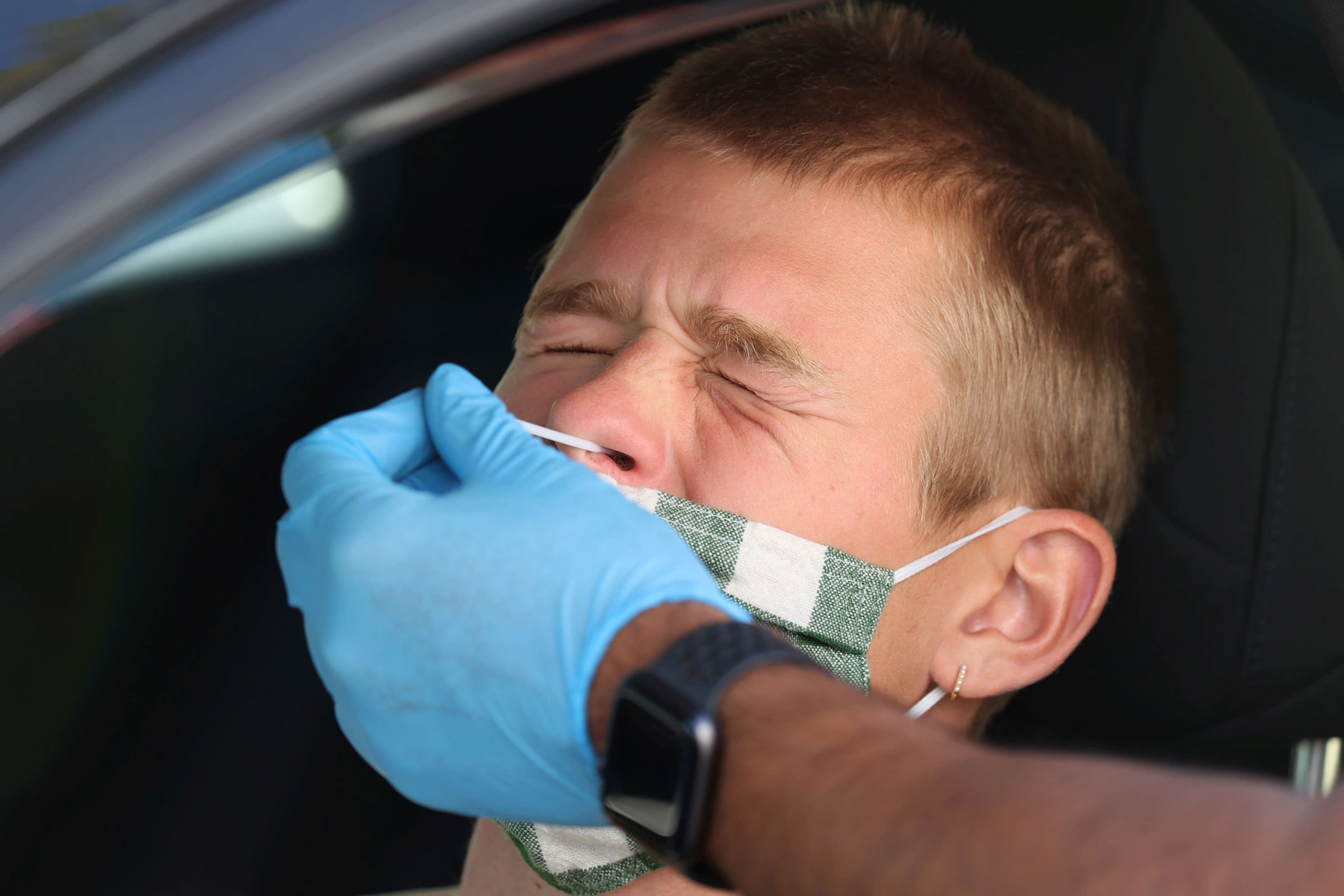
Hugo Boserup, 22, will receive a PCR coronavirus test as the global coronavirus disease (COVID-19) outbreak continues in Malibu, California, December 2, 2020.
Lucy Nicholson | Reuters
LONDON – Most people who have had Covid-19 have been protected from getting it again for at least six months, but older patients are more susceptible to reinfection, according to peer-reviewed research published in The Lancet medical magazine Wednesday night.
The first large-scale study of coronavirus re-infection rates was conducted in Denmark in 2020, and the findings confirmed that only a small proportion of people (0.65%) returned a positive PCR test twice. PCR tests are considered the gold standard and will tell you if you currently have the virus.
While previous infection provided about 80% protection against reinfection for those under 65 years old, for people 65 and older it provided only 47% protection, indicating that they are more likely to contract Covid-19 again.
The authors of the study – which was conducted by researchers at the Staten Serum Institut and the University of Copenhagen in Denmark, and the European Center for Disease Prevention and Control in Sweden, and who received no funding – found no evidence that the protection against reinfection decreased within a follow-up period of six months.
The Lancet noted that the researchers’ findings validate strategies that prioritized protecting the elderly during the pandemic, such as improved social distance and vaccine prioritization, even for those recovered from Covid-19.
“The analysis also suggests that people who have had the virus should still be vaccinated, as natural protection cannot be relied on – especially among the elderly,” The Lancet said in a press release Wednesday.
According to Johns Hopkins University, the coronavirus pandemic has caused more than 120 million infections and more than 2.6 million deaths to date.
While there have been previous studies suggesting that, after previous infection, immunity to Covid-19 could last for at least six months, this latest study provides a better indication of the level of protection and how it differs between age groups.
Commenting on the study, Dr. Steen Ethelberg of the Statens Serum Institut in Denmark who supported the research earlier findings on re-infection rates.
“Our study confirms what a number of others seemed to suggest: re-infection with Covid-19 is rare in younger, healthy people, but the elderly are at a higher risk of getting it again. Because the elderly are also more likely to have serious disease symptoms.” our findings highlight the importance of implementing policies to protect the elderly during the pandemic. “
The study was conducted by researchers who analyzed data collected as part of Denmark’s national coronavirus testing strategy, which tested more than two-thirds of the population (69%, approximately 4 million people) in 2020.
Free, national PCR testing – open to everyone regardless of symptoms – is one of the central pillars of the Danish strategy to control the spread of the virus.
Researchers used this data, which covered the country’s first and second wave of infection last year, to estimate protection against repeat infection with the original Covid-19 strain. Ratios between positive and negative test results were calculated taking into account differences in age, gender and time since infection, and these were used to make estimates of protection against reinfection, The Lancet noted.
Need further studies
It is important to emphasize that the authors note that due to the time frame of their study, it was not possible to estimate protection against reinfection with new variants of the virus that emerged late last year. The variant discovered in the UK has since become a dominant species in, for example, Europe, as it is more transmissible.
Further studies are needed to assess how protection against repeated infection may vary with different strains of the virus, the medical journal noted.